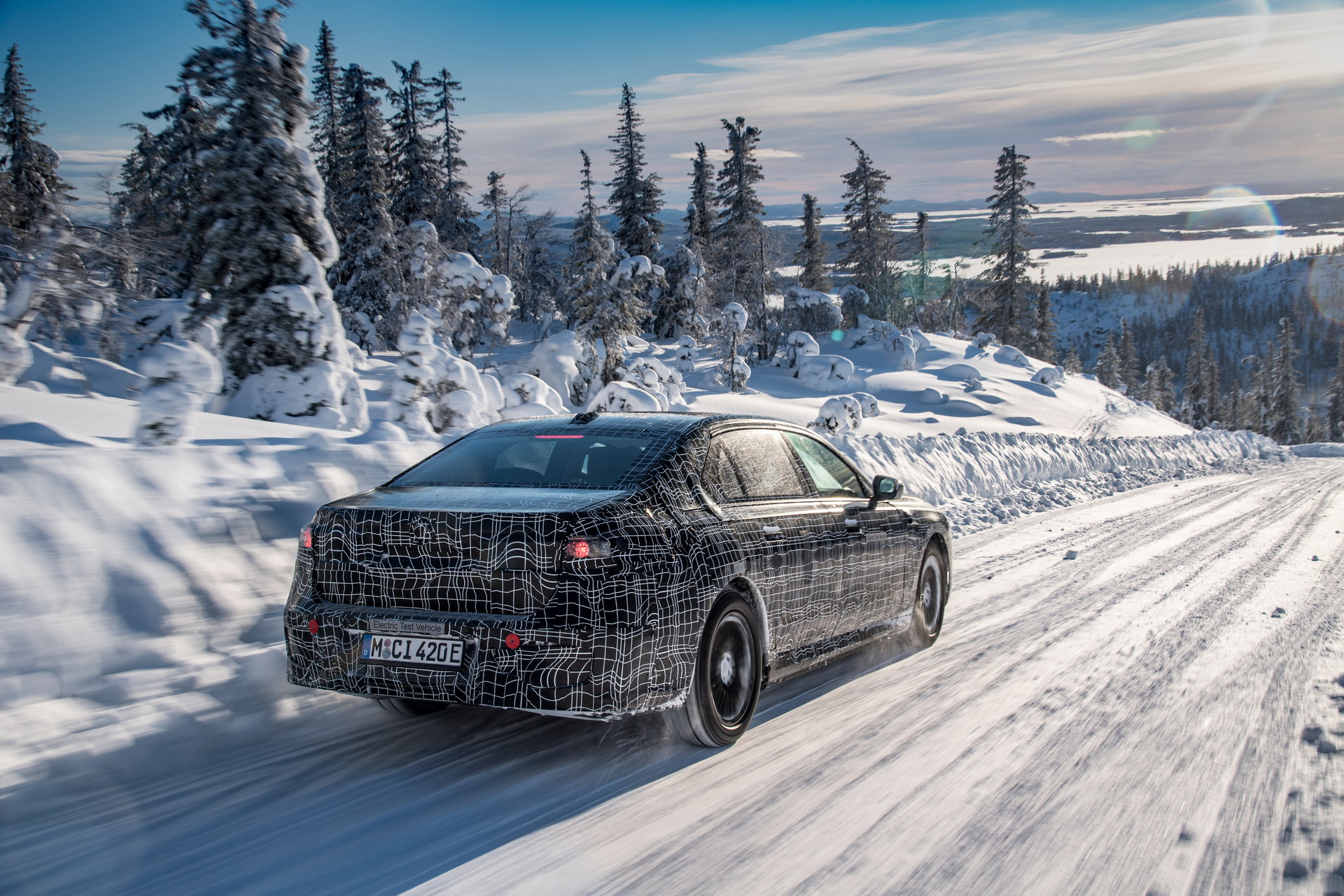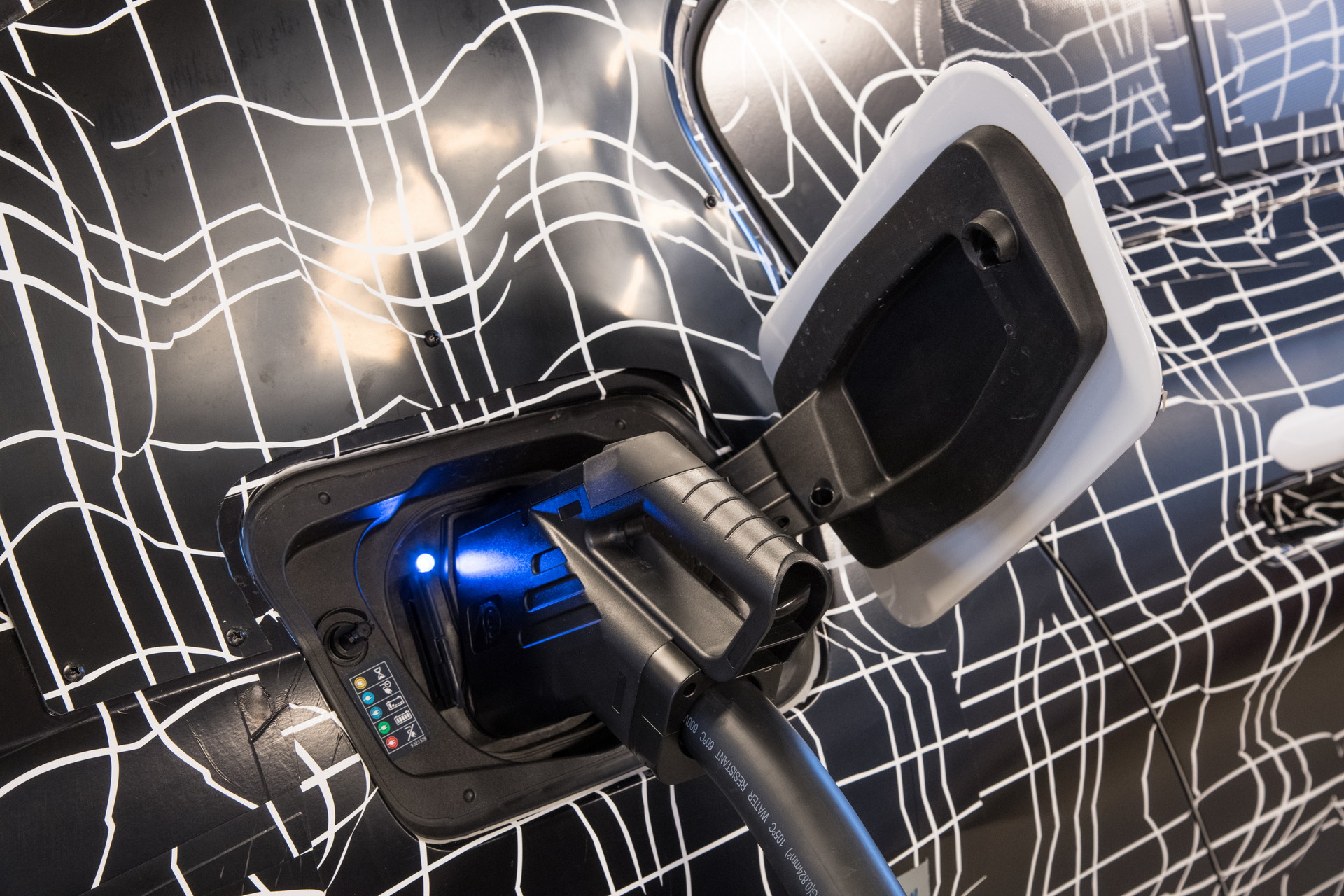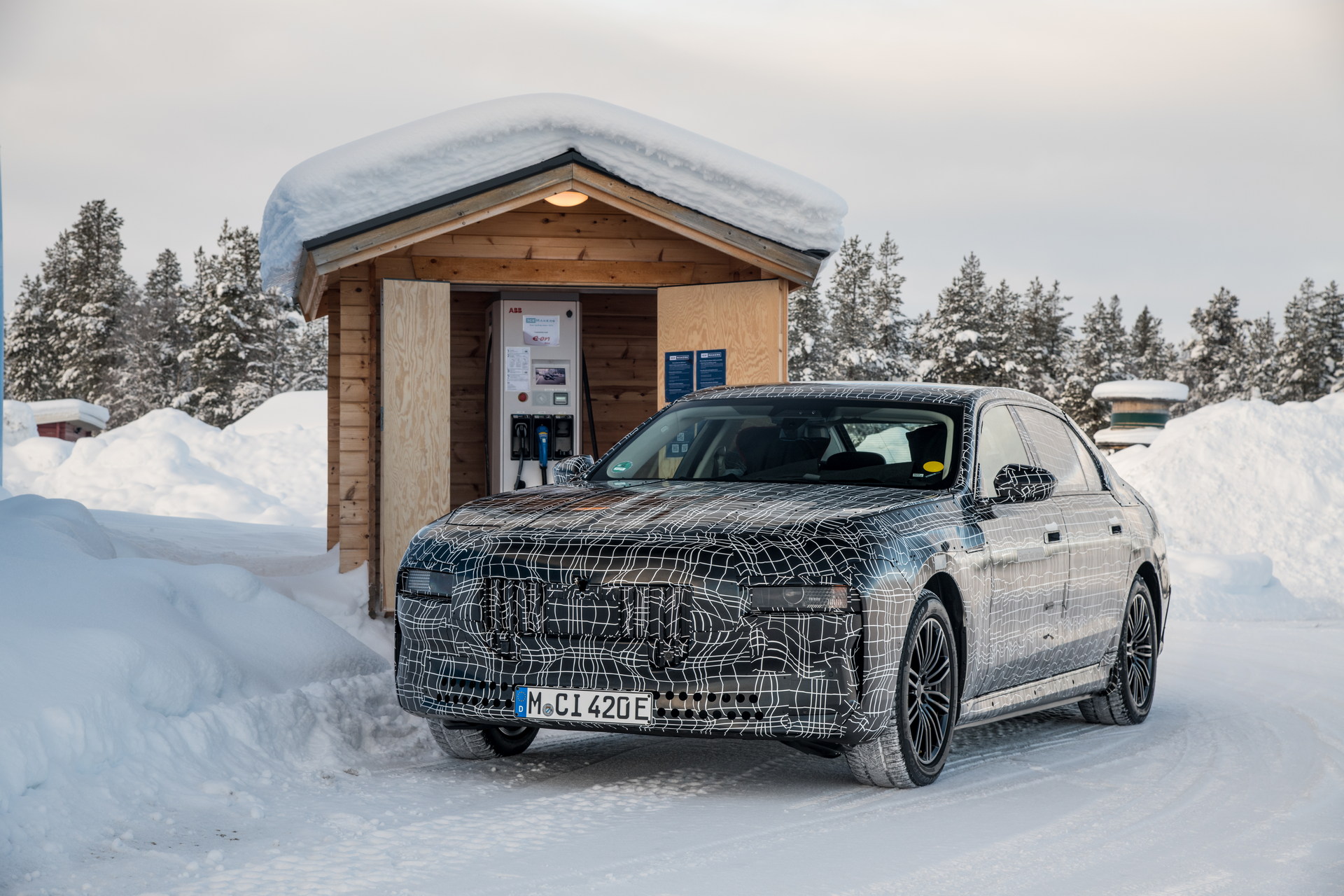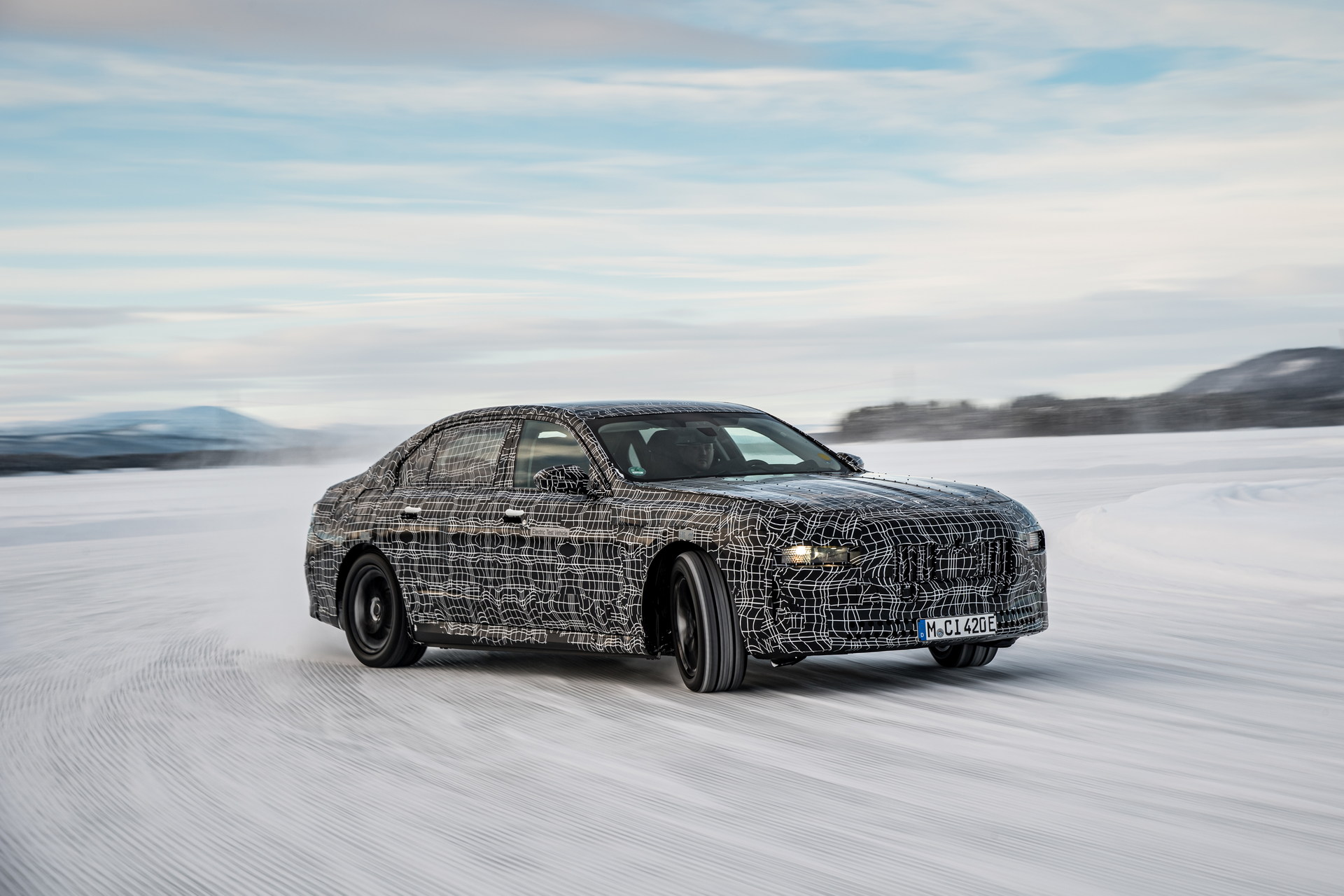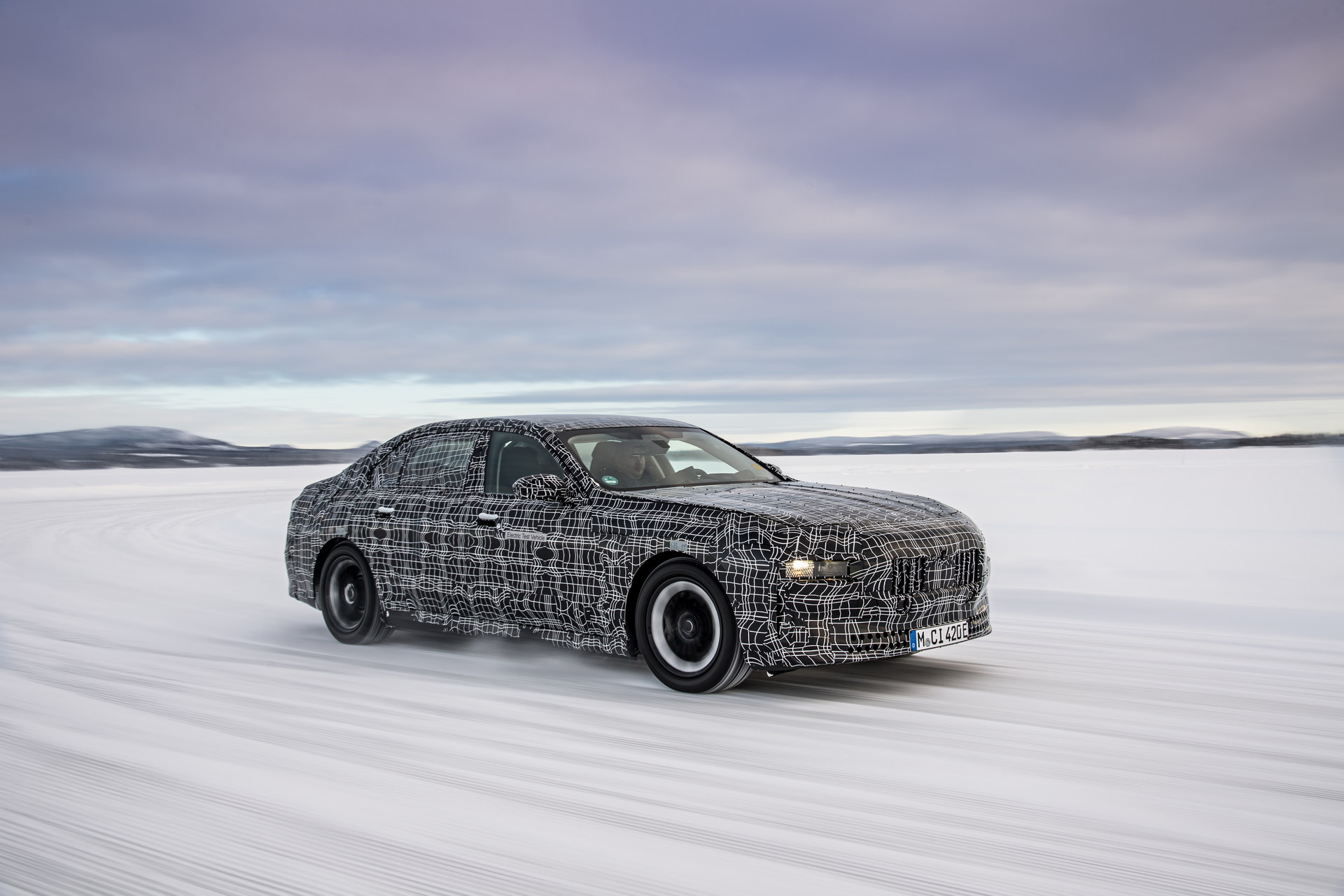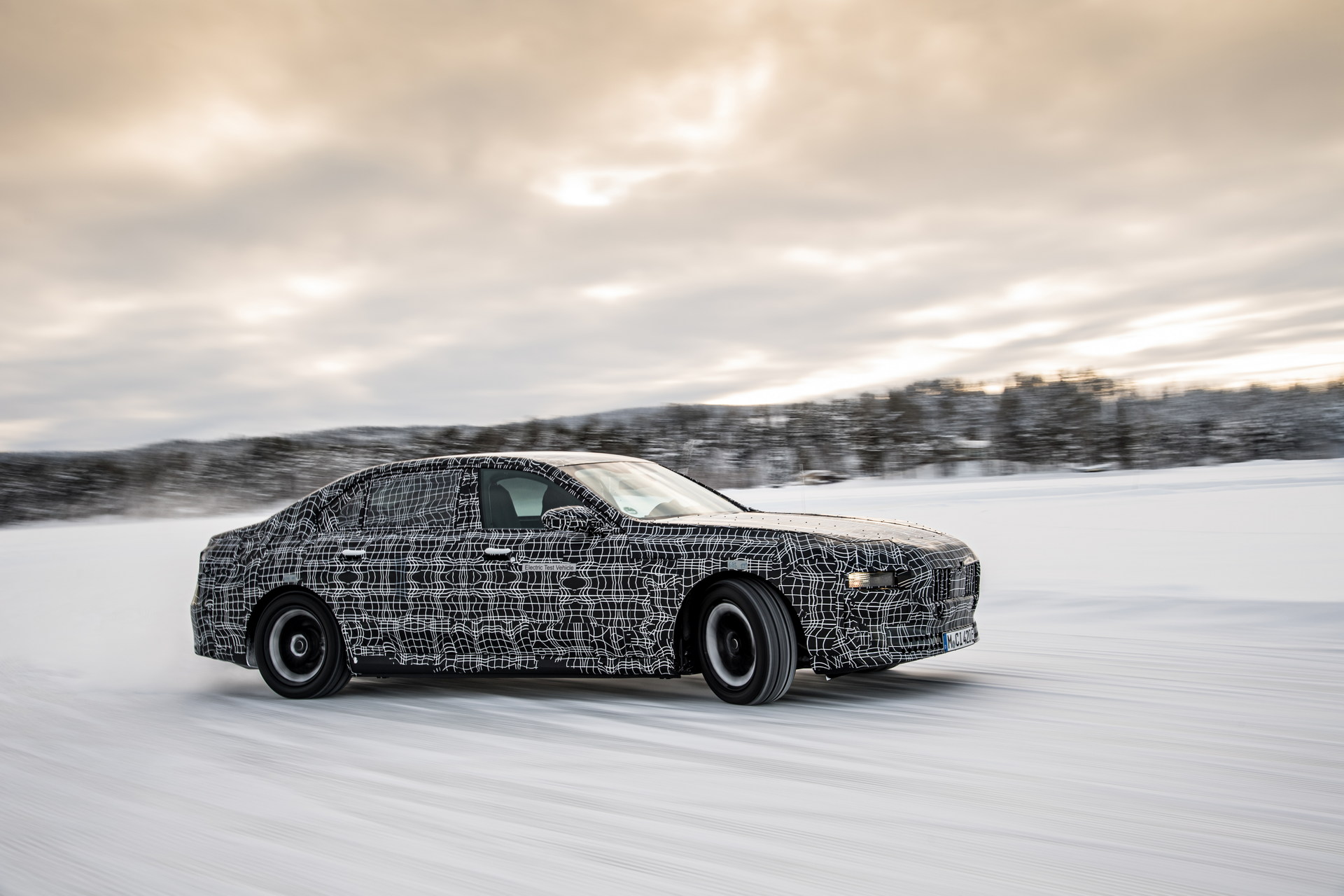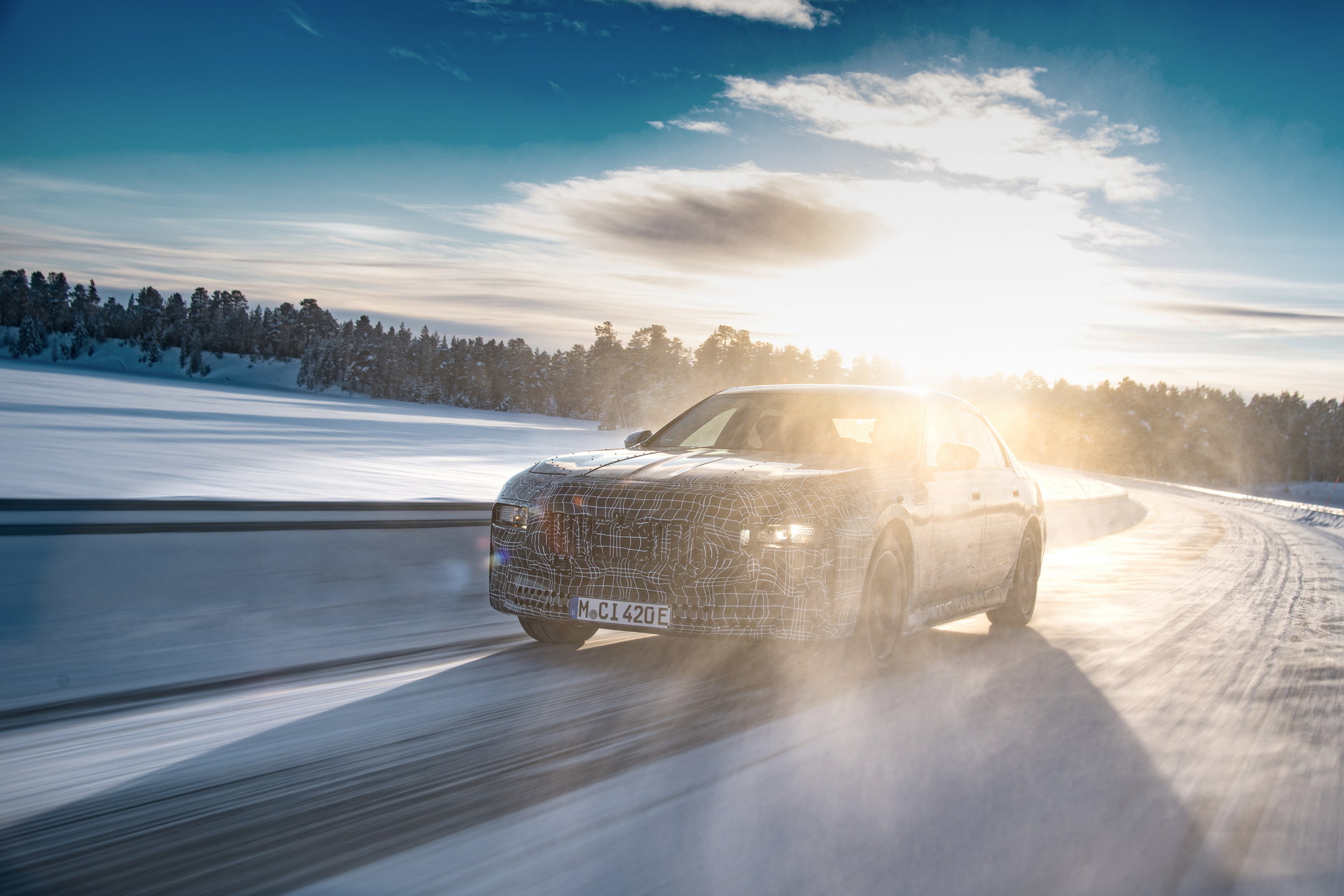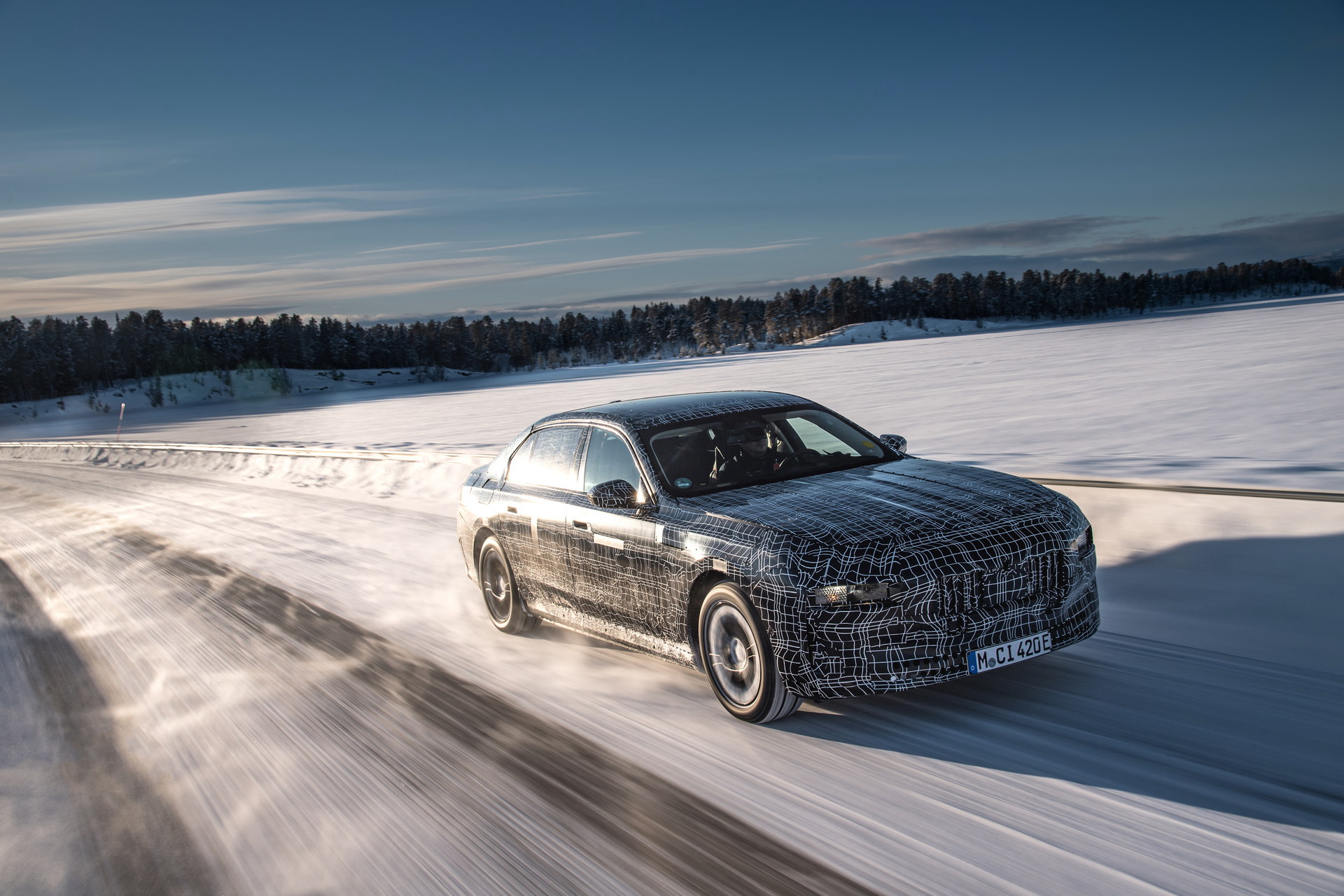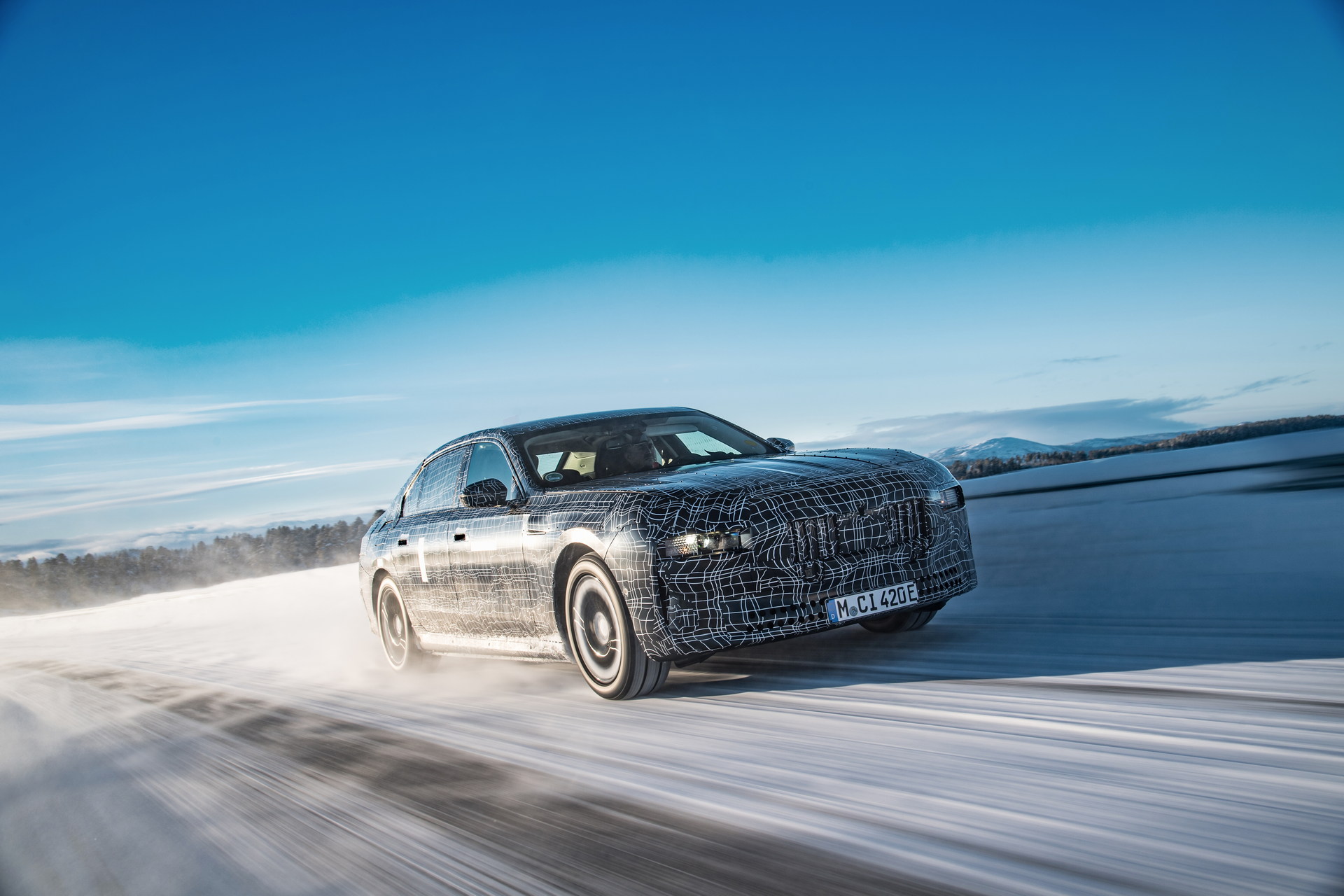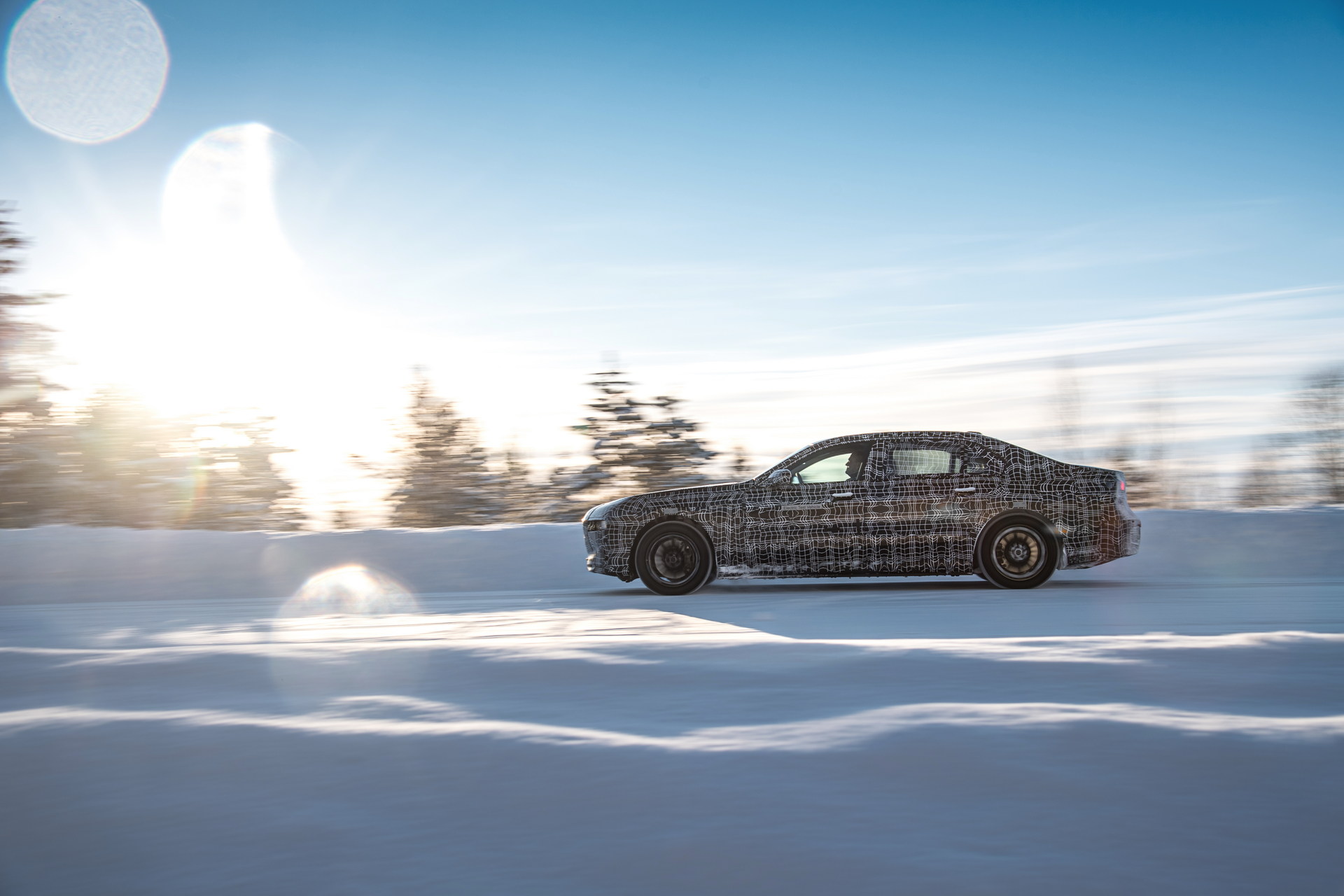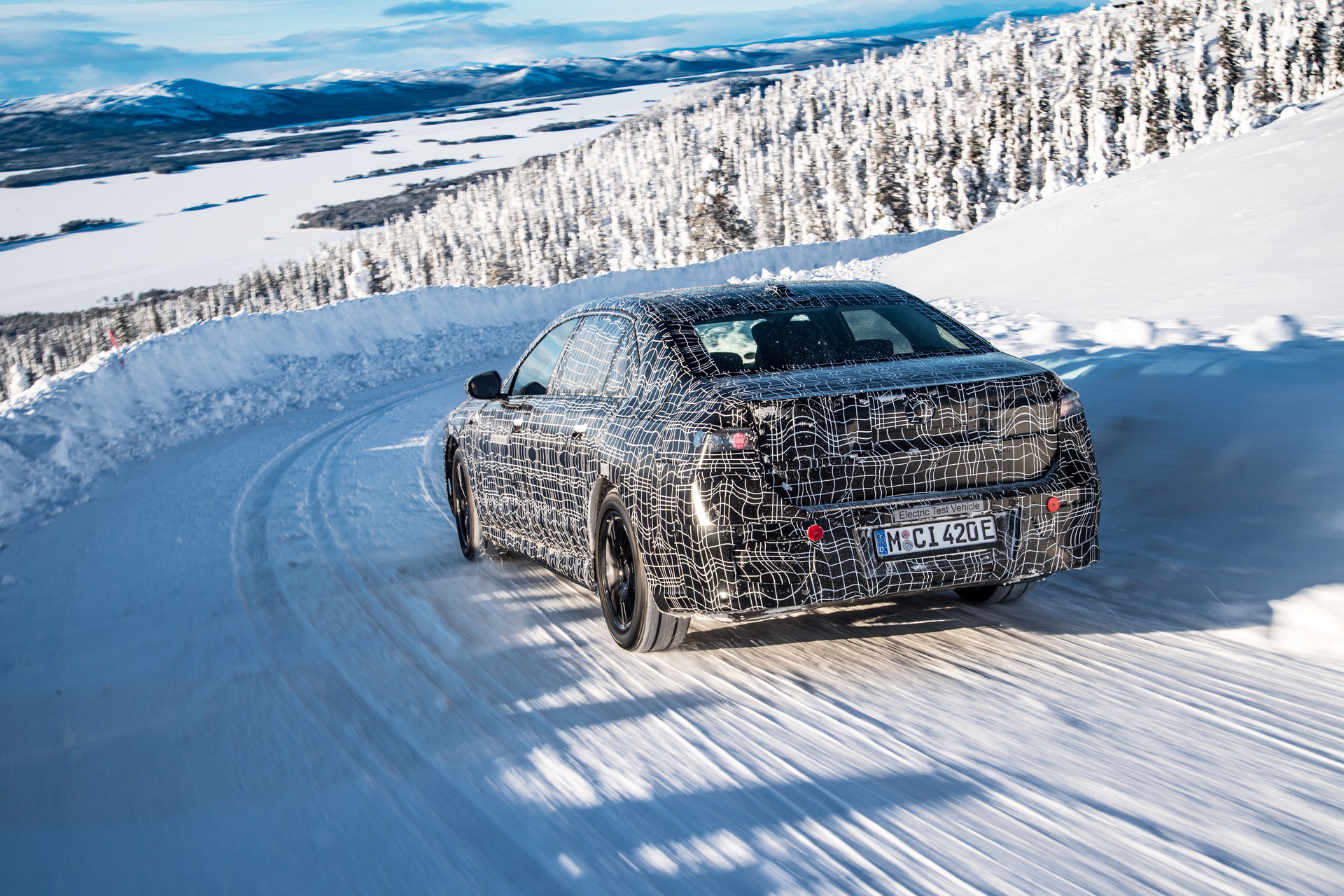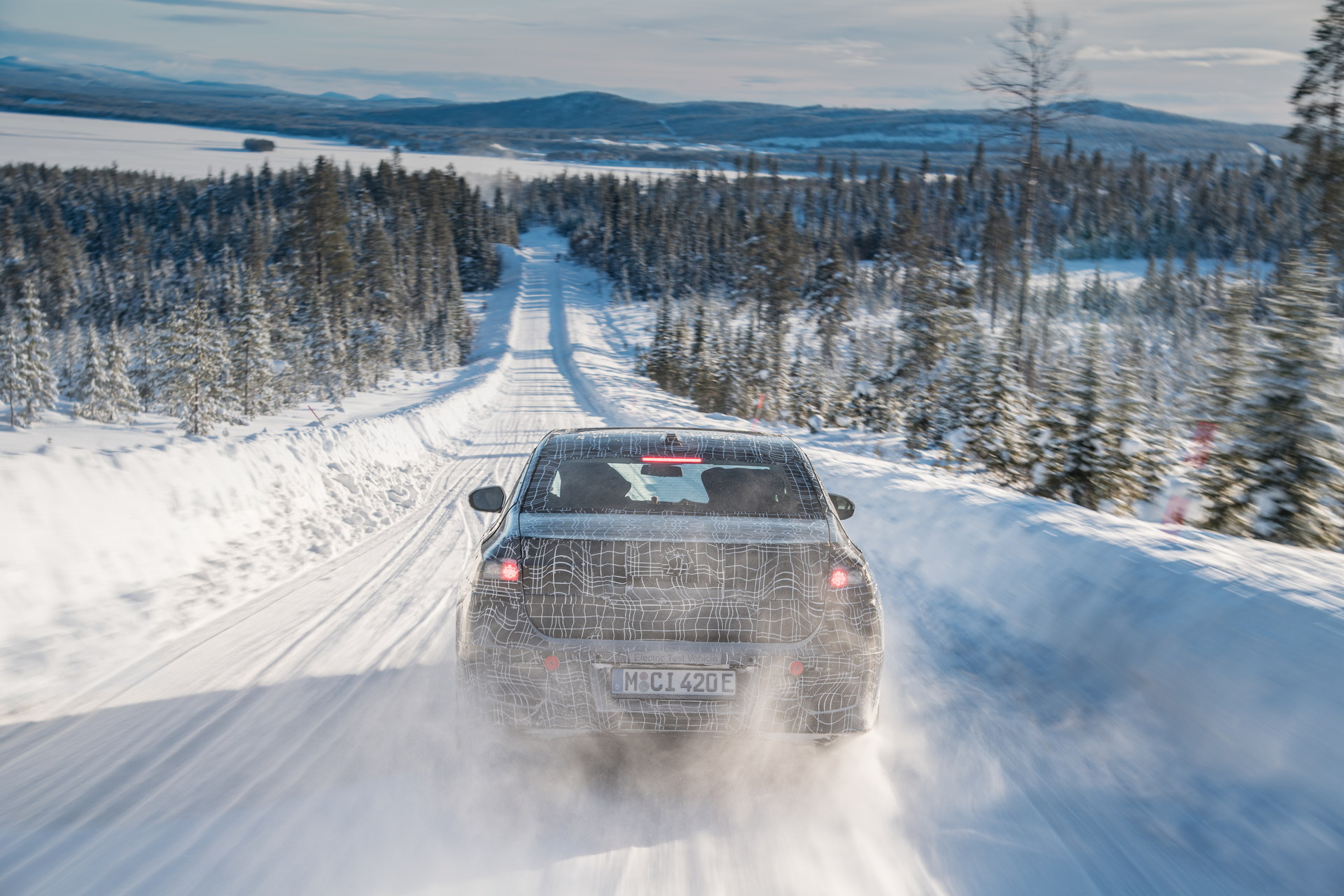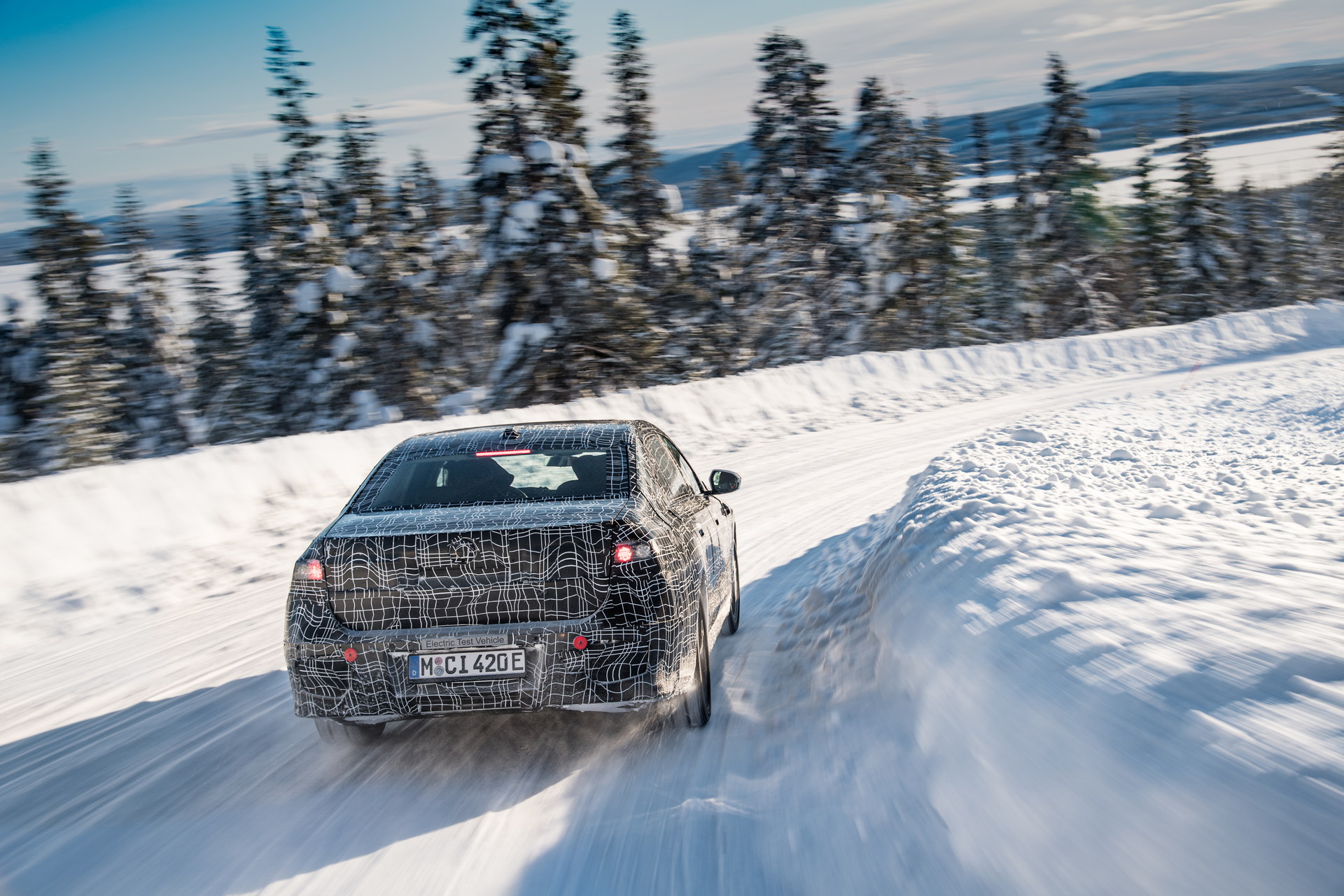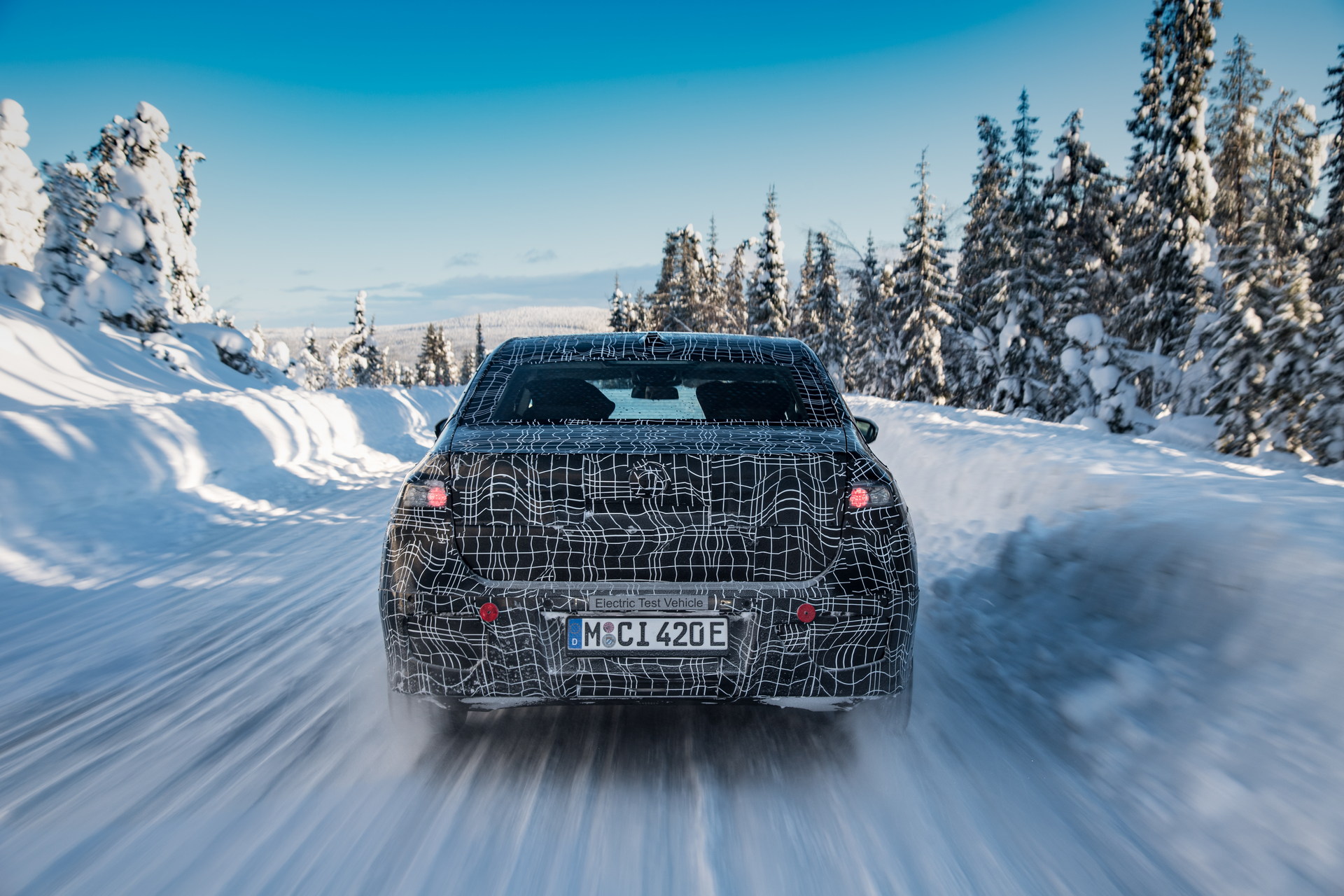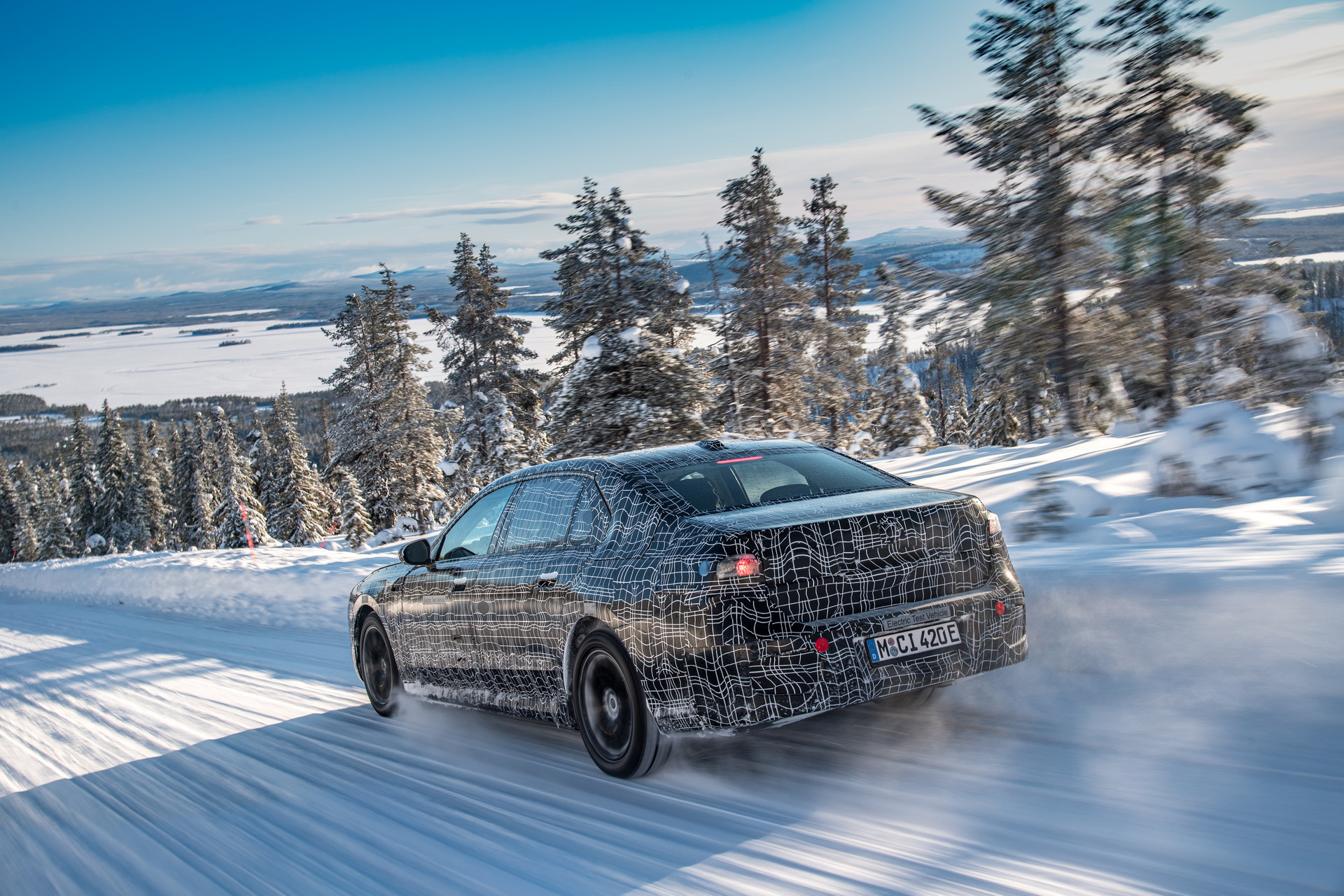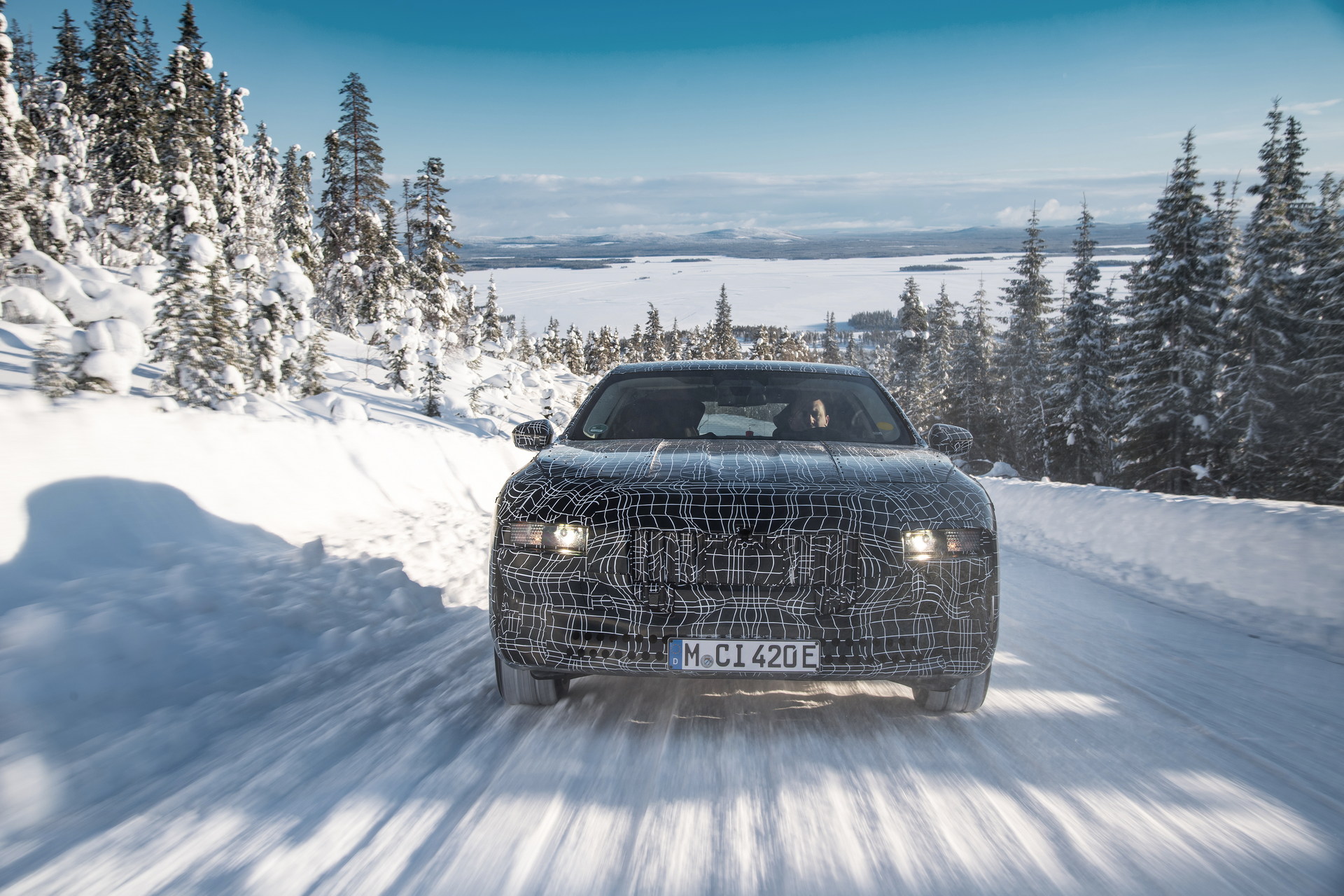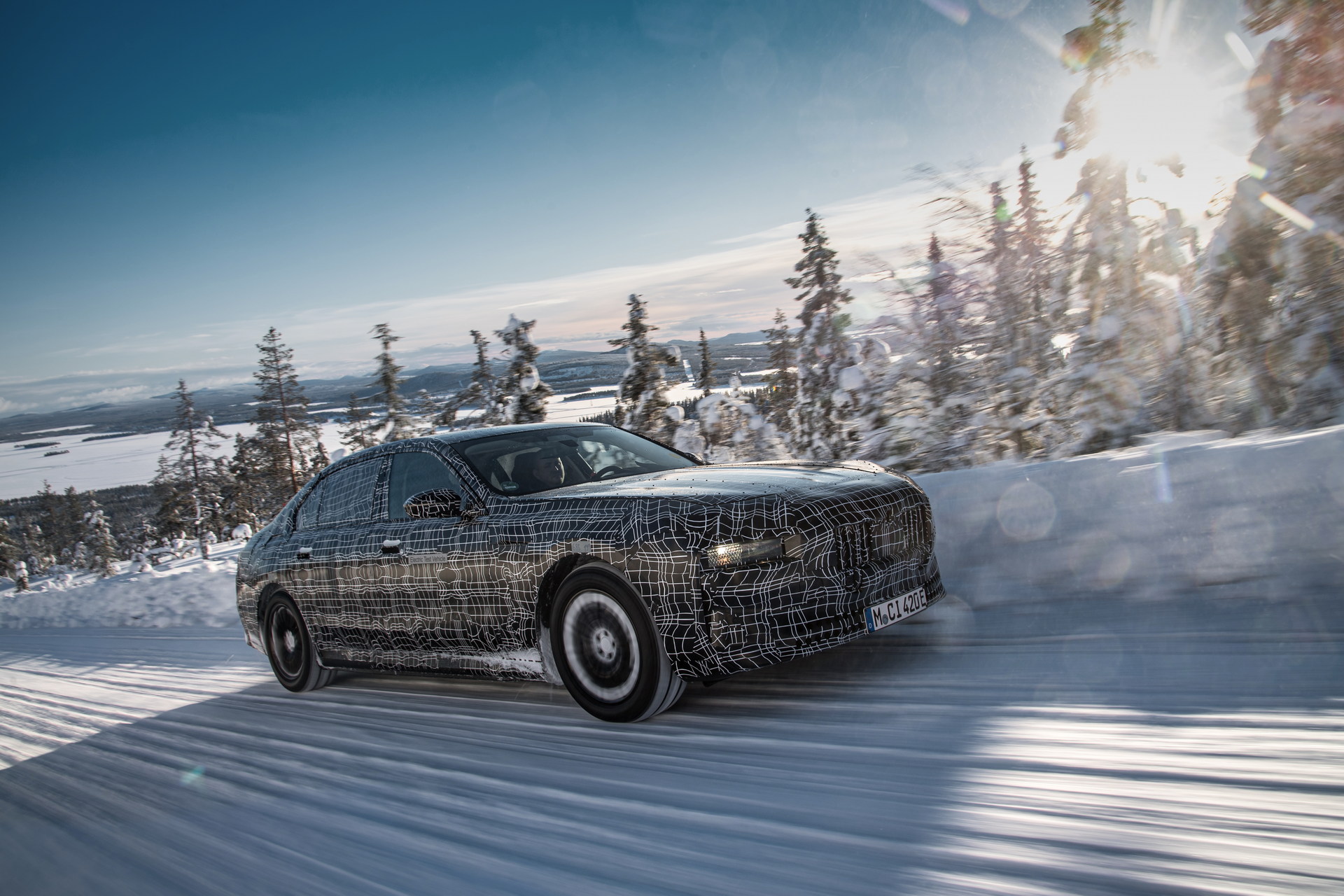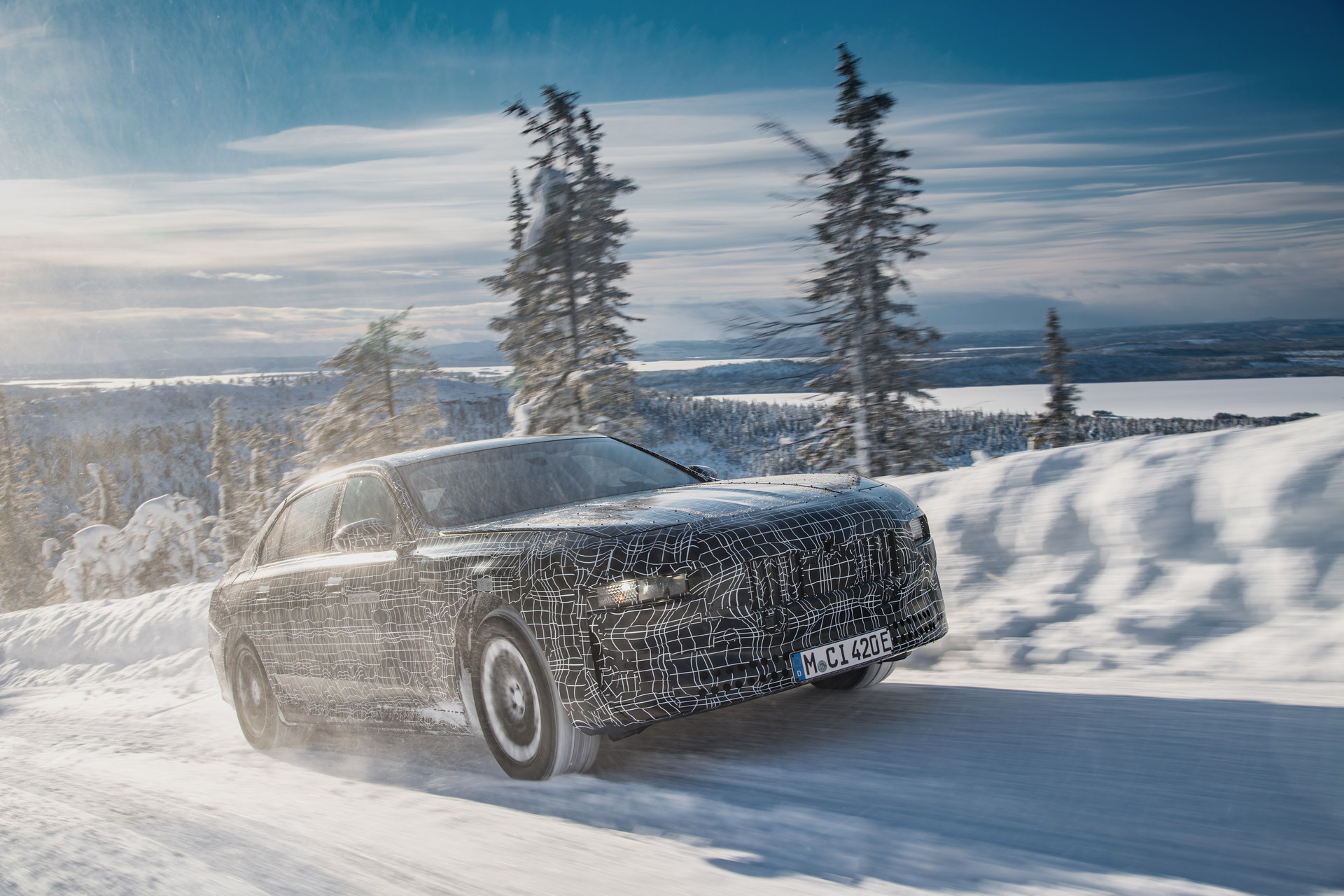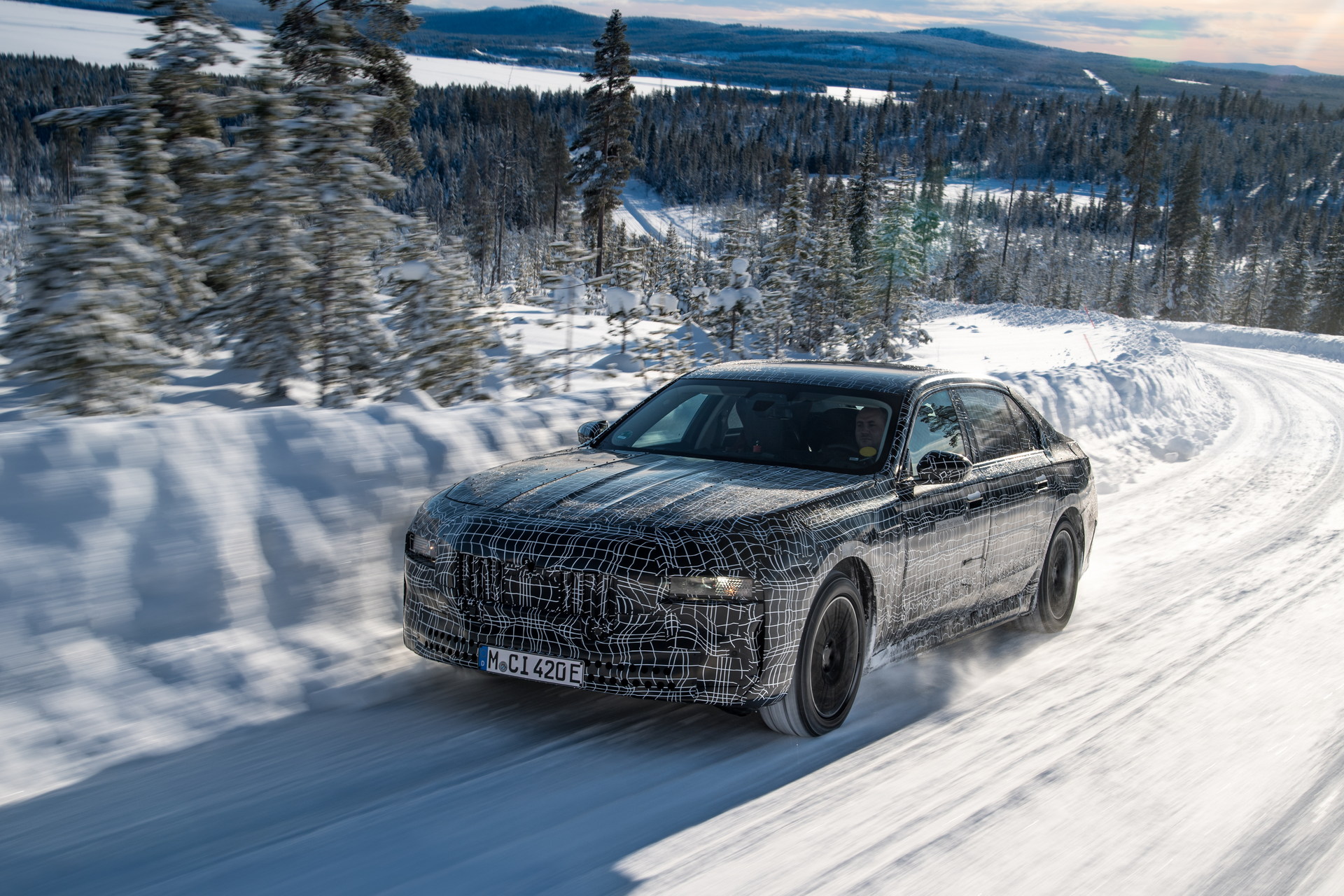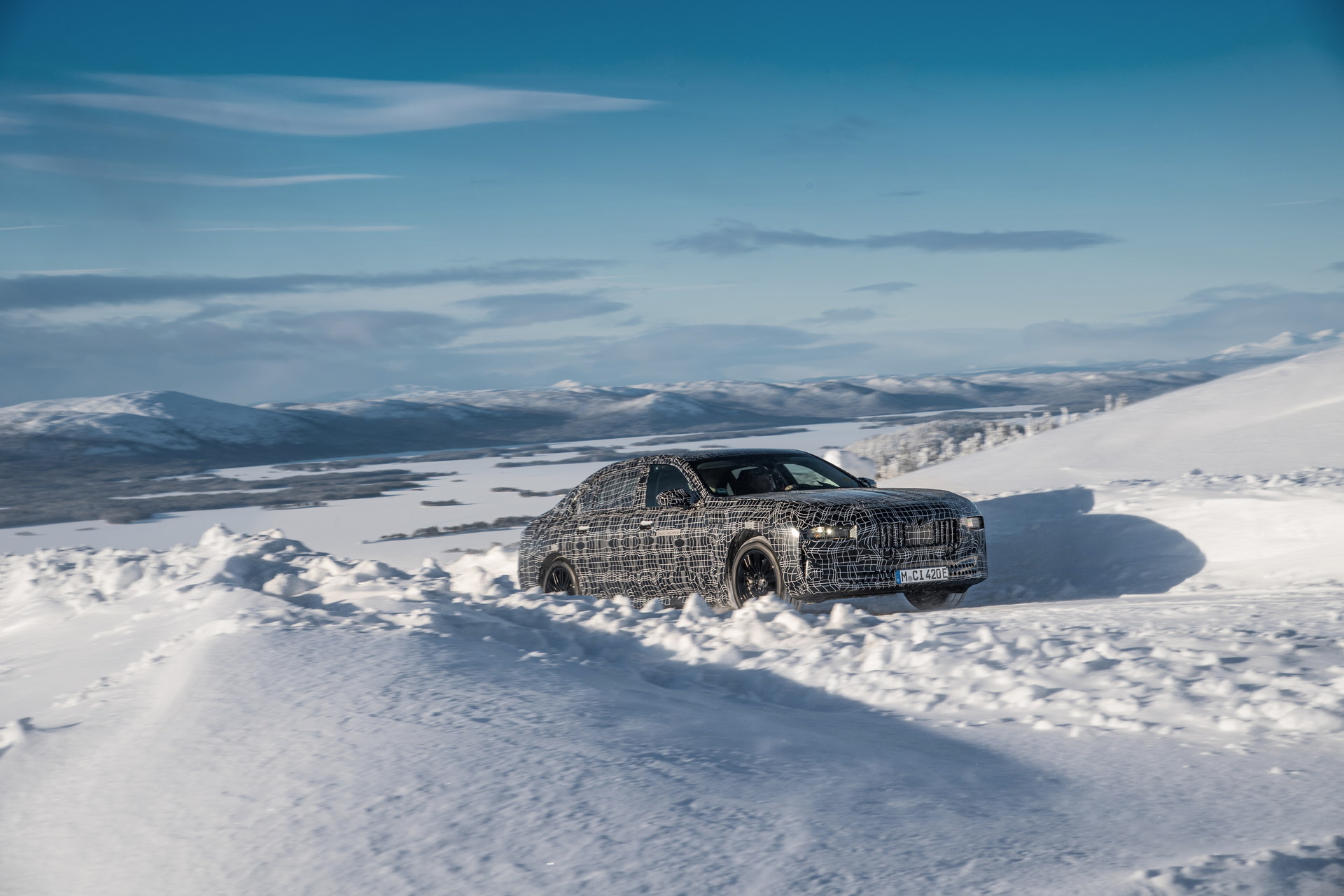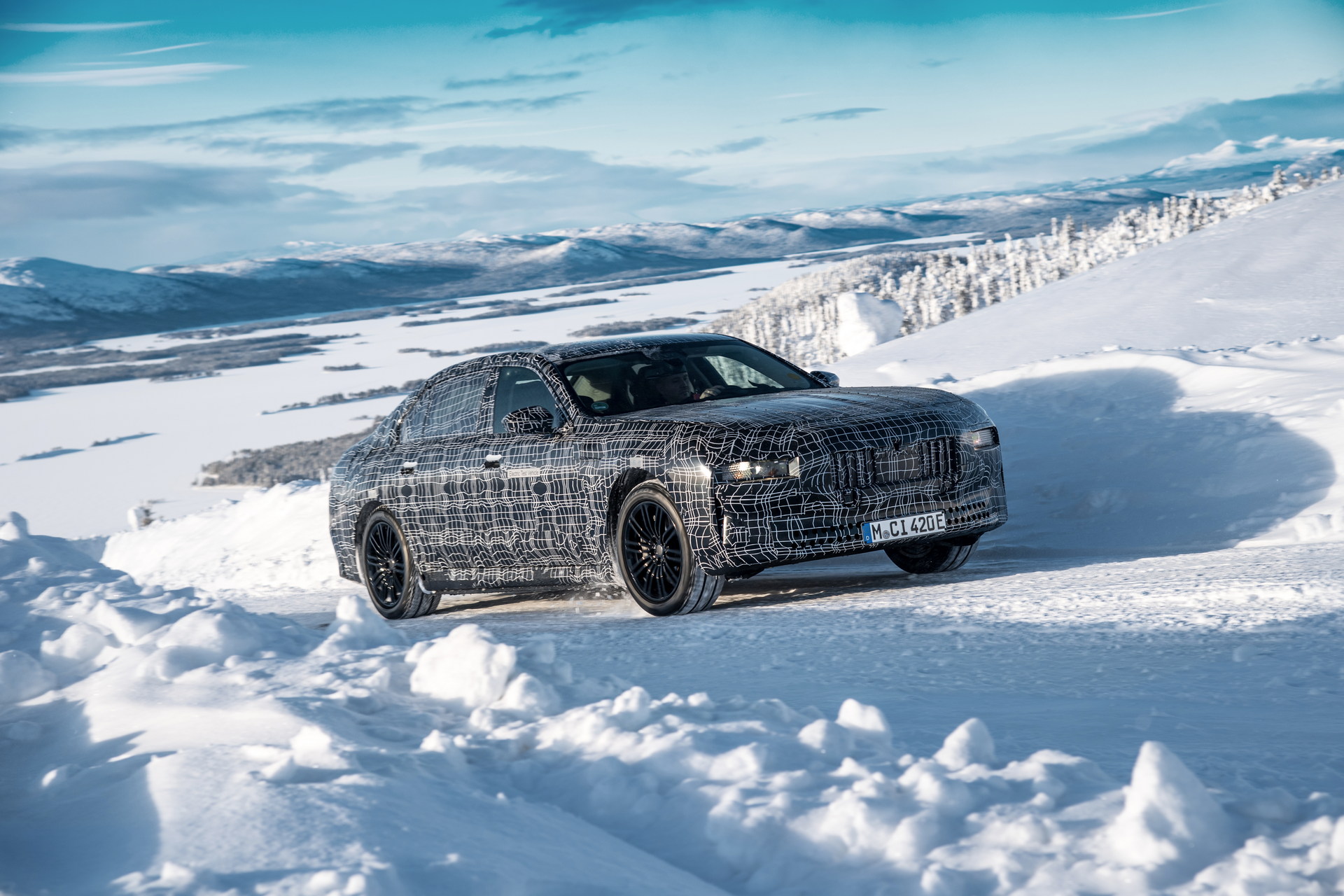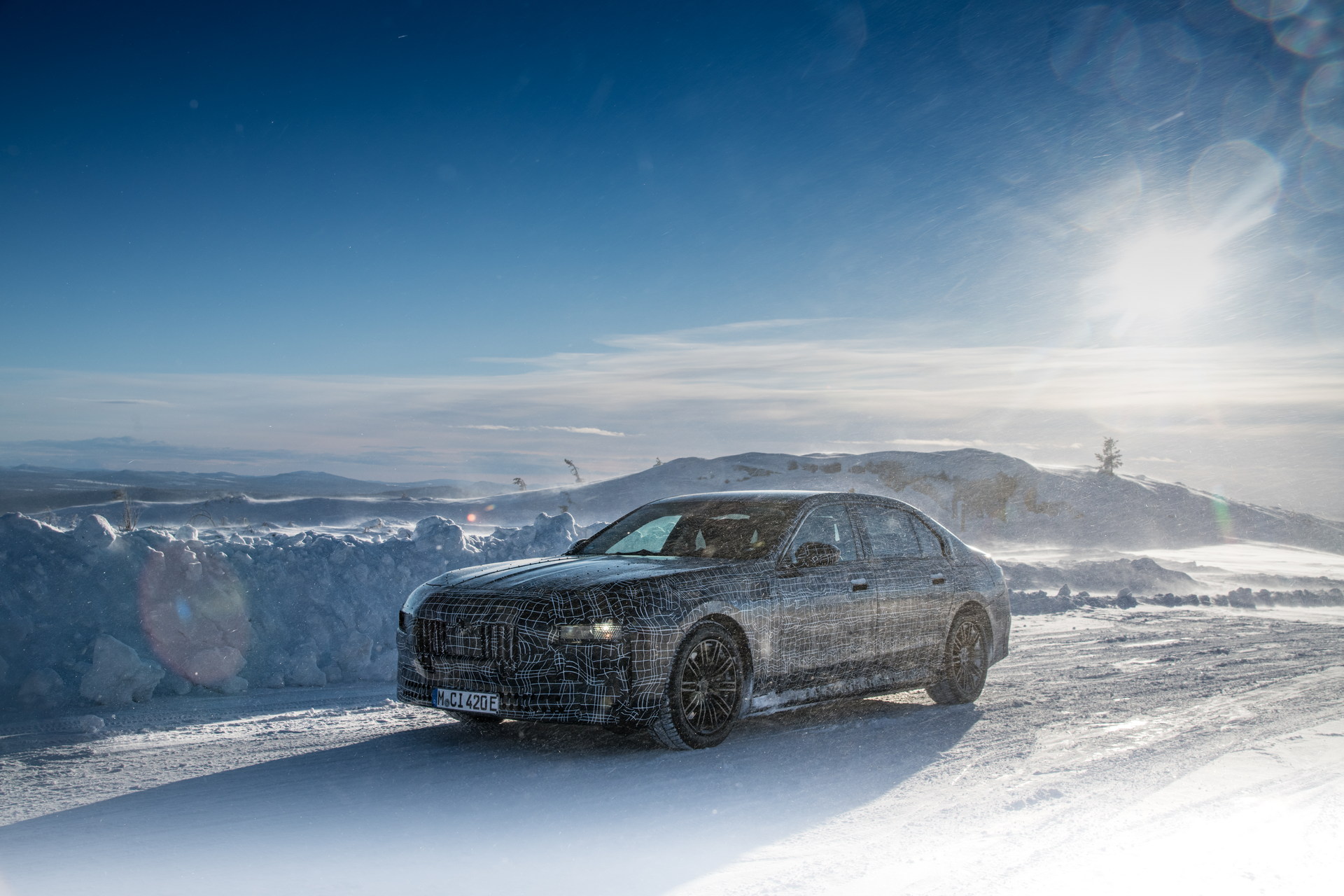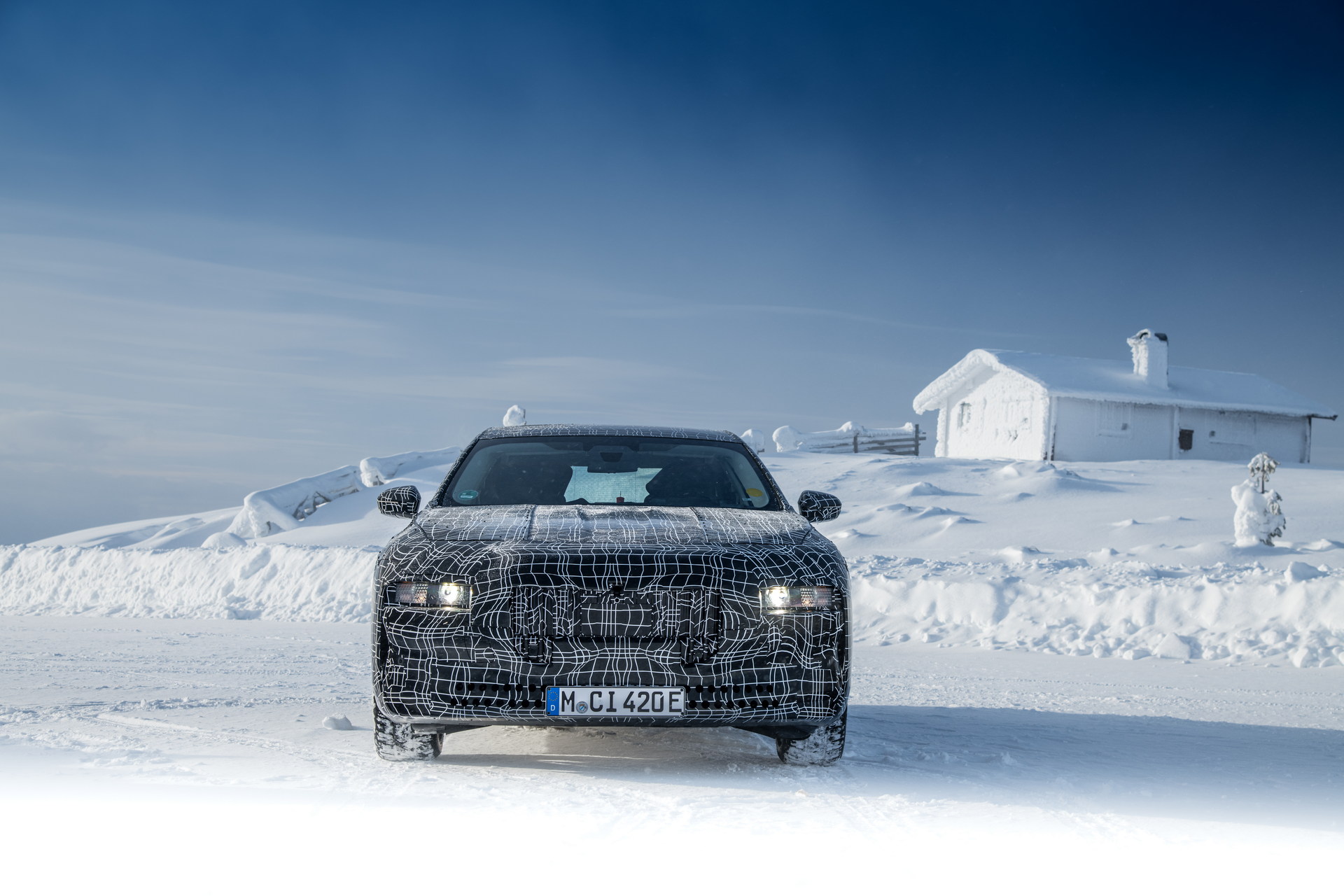BMW published a set of official pictures showing camouflaged prototypes of the upcoming all-electric i7 during winter testing in Arjeplog, Sweden. The Munich-based automaker suggests that the i7 will be “the world’s first all-electric luxury sedan”, which sounds like a quite bold claim.
The biggest competitor of the upcoming BMW i7 is the Mercedes-Benz EQS that is already on sale after its premiere in April 2021. However, if you look closely you will notice that the EQS is not technically a sedan, since it has a rear hatch. Then there is the Audi e-tron GT and the Lucid Air – both fully electric sedans – but their sub-5-meter length puts them closer to the smaller Mercedes-Benz EQE / Audi A6 e-tron / BMW i5 trio.
In other words, BMW is probably right about the i7 being “the world’s first all-electric luxury sedan”, as was Mercedes-Benz when they said their EQS was “the first electric vehicle in the luxury class”.
Read Also: BMW’s Design Director Says The Brand’s New Models Need To Be “Bold And Meaningful”
Back to the prototype, we have seen it quite a few times in our scoops, so there is nothing surprising. The black camouflage with white patterns can’t hide the traditional three-box proportions with a long bonnet and a generous wheelbase – features that will be shared with the next BMW 7-Series.
In terms of design details, we’ve already talked about the low-positioned headlights and the huge grille, which in the case of the i7 will be mostly covered. The bumper seems to have thin side intakes while the clamshell bonnet and the profile are more sculpted than the current 7 Series while retaining signature elements like the Hoffmeister’s kink at the C-pillar.
See Also: 2023 BMW 7-Series Drops More Camo, Can Someone Put It Back On?
The prototype spends a lot of time on the frozen surfaces and snow-covered roads of the BMW Group winter test center in Arjeplog, Sweden which is only a few kilometers away from the Arctic Circle. There, engineers are testing the drive, suspension, steering, and braking systems, as well as the driving dynamics and vehicle stability. In typical BMW flavor, the goal is “to raise the balance between sportiness and ride comfort”. Of course, each powertrain variant of the 7-Series / i7 will feature a different setup.
The i7 will use the fifth-generation BMW Drive technology which debuted in the iX. The company didn’t reveal the specs of the electric powertrain or the high-voltage battery, other than the combined WLTP energy consumption which is 22.5-19.5 kWh/100 km based on current estimates. By comparison, the Mercedes-Benz EQS 450+ has a lower energy consumption of 19.8 – 15.8 kWh/100 km but it also seems to have a more aerodynamic shape.
The Bavarian firm confirmed that their electric flagship will be unveiled sometime in 2022.





